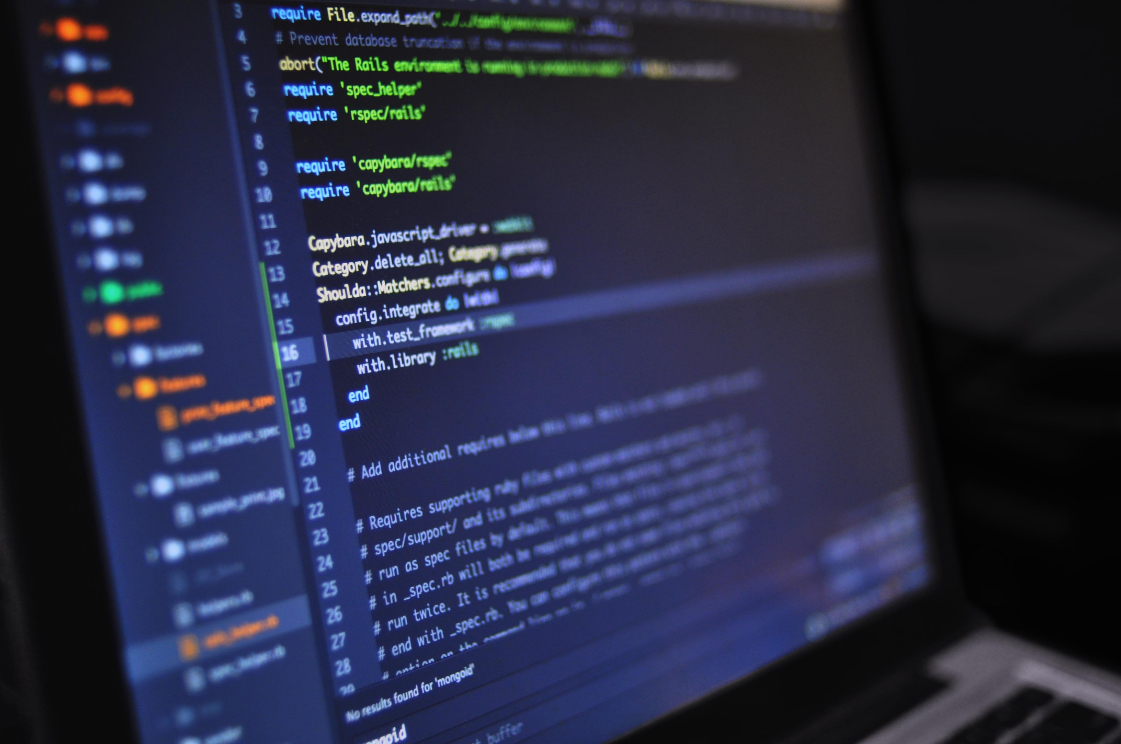Welcome to the world of artificial happiness
Comprehensive Guide on Using AI for Van Insurance
Artificial intelligence has fantastic potential to improve the insurance sector. Throughout many other industries, the disruption caused by AI algorithms is immense. There are lots of businesses that have started to use AI technology for every aspect of their business operations, often to great success. With this in mind, this article will serve as a comprehensive guide on using AI for van insurance.
Machine Learning Algorithms for Optimum Pricing
Pricing is at the core of many operations conducted by insurance firms. In competitive insurance markets, like the market for van insurance, it is critical that firms offer prices that are reasonable yet still allow for profits. Throughout history, there is much debate about what kinds of approaches to pricing are best. Certain businesses place a higher weighting on qualitative factors, while other businesses focus purely on quantitative factors when choosing the right pricing model.
They work similar to Google’s algorithm which determines ranking positions for keywords such as “SEO Dublin”, “buy a car”, “best fishing rivers”, etc.
Recently, with the explosion of machine learning algorithms, the potential for AI to greater influence pricing in the insurance industry is significant. Already, lots of insurance firms have started to incorporate using AI algorithms for the various steps of their pricing process. Generally, reports have shown that companies that have started to implement AI in their operations have seen large financial benefits. In fact, many within the industry are saying that insurance firms that neglect to use AI will likely become more and more uncompetitive as time goes by.
Using artificial intelligence to create machine learning pricing algorithms for van insurance requires lots of knowledge of computer science and mathematics. Generally, the algorithms are created by professionals that understand the specific implementations required in order to develop such algorithms. Companies that have yet to utilise artificial intelligence may find that they will have to hire programmers and other professionals that understand how to build and develop artificial intelligence algorithms.

Natural Language Processing for Improved Understanding
When looking to develop an optimum van insurance product, insurance companies should also incorporate natural language processing algorithms into their operations. Yet another component of artificial intelligence that has gained lots of attention in recent years is natural language processing. Using AI to analyse everything from verbal to written communications allows for a huge amount of new developmental opportunities.
Some insurance firms have started to incorporate natural language processing into many aspects of their customer relations department. Although the impact of using AI in departments like customer relations may seem insignificant, the data that is gained can be immensely useful. Firms that have started to use AI for their customer relations have gained the ability to quickly and efficiently pinpoint areas of their business that lack when compared to their competitors.
Lots of AI algorithms, especially in regard to processing written and verbal communications, can highlight key trends that are often hard to spot by humans. High-quality algorithms quickly showcase to managers and executives the key complaints and issues that customers are reporting regarding their van insurance products. A highly efficient algorithm will spot these trends at a rate that is exponentially quicker than manual review. From there, any insurance company will have the upper hand when it comes to upgrading, adjusting, and improving their van insurance for their customers.
Artificial Intelligence for Van Insurance Data Analysis
Data forms a huge component of the operations of successful insurance companies in the van insurance market. As mentioned above, the power of data to drive departments and processes such as customer relations and pricing is monumental. In the same manner, companies with a dedicated AI team should have no issues extracting and analysing large amounts of data from their customers to formulate effective and efficient strategies moving forward.
The field of data science in relation to artificial intelligence is becoming more and more synergised with each day. Van insurance businesses that incorporate the services of a data scientist along with expert algorithmic programmers have noticed they have vastly improved their ability to track and build upon data-driven insights. Many of the most successful providers of van insurance have started to expend greater proportions of their yearly expenditure on tech initiatives such as dedicated AI teams.

The Future of Van Insurance
It’s clear that using AI for insurance is a must for any insurance firm that wishes to remain highly profitable in the future. The immense competitiveness of the insurance industry means that refraining from adapting can have devastating financial consequences. When working in the insurance industry, the ability to constantly adapt and innovate is a key quality that determines future financial viability.
It is clear that the future of insurance includes artificial intelligence. Everything from machine learning to natural language processing has improved many operations of insurance providers to this day. Further, the impact that these sectors of artificial intelligence will have on insurance will become greater and greater. Companies in the insurance industry must embrace AI, especially when dealing with products like van insurance, otherwise they will be left behind.
Overview Of Artificial Intelligence In CBD Manufacturing
The use of CBD has become very popular over the last few years. Part of this increase has to do with the legalization of marijuana-based products in many different states. Artificial intelligence has been talked about for decades, a way of mimicking the activities of what a human being would choose to do. AI is more of a myth than it is a stable part of our society, but both artificial intelligence and CBD Oil Manufacturing companies seem to be coming together especially when it comes to CBD capsules. Here is an overview of how AI and CBD are joining forces with regard to production, manufacturing, and marketing.
What Is Artificial Intelligence?
The most obvious example of artificial intelligence in our popular culture is Hal 9000 from the movie 2001: a space Odyssey. It is a computer program, one that seems to interact in a similar manner to a human being with the occupants of the ship. Today, artificial intelligence is on the verge of becoming more commonplace. As computers are becoming faster, able to process information at speeds comparable to the human brain, it is possible that we may have AI in our homes, cars, and in businesses all across the world. A precursor to this technology can be seen in the manufacturing sector, especially with companies like Amazon that have robots that are now doing the work of human beings when preparing packages. In the CBD community, there was recently a gathering where AI was responsible for producing the music that people would hear while they were discussing cannabidiol. However, are these two things compatible, or was it just a gimmick to pursue more sales for their product?
Understanding CBD
CBD is a substance found in the cannabis plant that is very different from THC. Although it does have the same medicinal qualities, it does not have the effect of euphoria when smoking or ingesting it. It has been shown to have the ability to help people with seizures, and has even been instrumental in reducing the size of tumours. Effectively, it is a new age type of all natural medication that is becoming more common, with people using it to combat conditions like depression or anxiety. When combining this with artificial intelligence, especially in a lounge like atmosphere, you can see how both of these will work well together. People will come to these places in order to experience the benefits of CBD, all the while being pampered by artificial intelligence systems. It could be a fad, or it could be representative of a wave of the future that will become commonplace for those that are younger.
Other Ways AI Can Be Used With CBD
Entrepreneurial individuals are trying to find more ways of incorporating AI into the sale of CBD. For the most part, artificial intelligence is used as a way of selling this product, not so much in the aspect of manufacturing. There are currently 33 states that allow the use of CBD for medicinal purposes, as well as 10 that allow it for recreational use. Many of the businesses that supply the cannabidiol are doing so with the help of AI related systems. In regard to selling these products, AI has become very commonplace. Chat bots are set up to improve customer service relations and offer employee training. They can also be used to find leads, train employees, and deliver a much better post sale experience. In fact, it is possible to use these advanced computer programs to produce a sales forecast. In these ways, and many more, AI is being integrated into the production and sale of cannabis related products, especially in the CBD marketplace.
How far will this go?
It is unlikely that the use of artificial intelligence will completely replace the human activities that are necessary for the harvesting and processing of CBD related products. However, you never know. As advancements in robotics and technology continue to increase, there could be a day when every CBD product will be produced by a computer program that displays artificial intelligence. If robotics are ever integrated into this industry, those that are creating and processing marijuana based products may become a thing of the past. It would certainly help the company save money by employing AI instead of actual human beings that may need to have overtime pay or benefits.
The Drawbacks Of AI And CBD
No assessment of the correlation between AI and CBD would be complete without listing some drawbacks. There are no products or services that do not have inherent flaws. First of all, when people purchase CBD products, most of them like to interact with human beings that can answer their questions. Although this does not apply to online orders, people have become conditioned to go to shops where human beings will be there to help them. Another drawback is the understanding of how far artificial intelligence will play a role in the production of CBD related products. Perhaps not in the harvesting, but in the preparation and production of edibles is where you will see more AI interaction. There are machines today that are able to produce many of the food products that we consume. Therefore, it stands to reason that AI may soon become part of the processing of CBD products for businesses that want more consistency and higher levels of production.
The Benefits Of CBD And AI Working Together
There is one primary benefit of connecting AI with CBD production and sales. It has to do with speed. When the auto industry first started, most of the process of creating a vehicle was done by people. Today, manufacturing lines that produce vehicles are almost completely automated, and the same may be true for those in the CBD industry. The benefit is that it will streamline the process, and make the production of CBD products much better in regard to speed and accuracy.
Combining AI with the sale of CBD products is just starting. For the most part, people are receptive. Part of that reason has to do with the limited capabilities of artificial intelligence. There will likely be many companies that will test new ideas out, and eventually someone will come out with a system for processing cannabidiol using nothing more than a team of AI robots. Until that day, it is simply interesting to watch how artificial intelligence is gradually moving into our society, and how CBD may become part of that process.
Will Artificial Intelligence Have a Place in Medicine?
Not all that long ago, artificial intelligence (or AI) was a thing of science fiction, envisioned only by daydreamers and sci-fi aficionados. Back then, we wouldn’t have thought that AI would have carved out a role in so many areas of modern production and industry. With as much data as we enter into the digital sphere, we need to find new and innovative ways to access, store and retrieve such information. This is where artificial intelligence could very well find its role in the medical field.
AI Algorithms That Already Show Immense Promise
In response to the demand for a more streamlined process of dealing with digitally-stored medical data, some companies have already jumped at the chance to produce AI algorithms that can assist hospitals and other medical institutions. First, let’s look at IBM’s Medical Sieve.
Medical Sieve
The Medical Sieve algorithm serves the purpose of reading radiology and cardiology imagery. Medical Sieve can detect anomalies that indicate health concerns, which allows for the possibility of allowing radiologists and cardiologists to spend more time focusing on truly complex and more challenging medical cases.
Watson
Another invention to come from IBM is Watson, an algorithm that assists oncologists by reading through structured and unstructured medical data regarding a patient’s case. This essentially allows it to create an evidence-based plan of treatment for an oncologist’s patient.
Deepmind Health
The brain-child of Google’s AI department is in its beginning stages of development, but it shows great promise in providing more efficient and higher quality care to patients by mining the records maintained in the hospital’s system. Google has paired with the Moorfields Eye Hospital NHS Foundation Trust to the goal of assisting eye health patients.
Other Applications of Artificial Intelligence in Medicine
The three endeavors outlined above are just the tip of the iceberg. Other companies are working toward implementing AI algorithms into pretty much every aspect of healthcare. From the creation of drugs by making patient trials more efficient, to supporting patients with serious chronic conditions in-between doctor’s visits, there is no arm of medicine that AI isn’t reaching for.
The biggest hurdle that stands in the way of progressing AI into the medical field has little to nothing to do with the abilities of human innovation. What stands to hinder progress more than anything is the human fear of artificial technology. However, these scaled-down AI algorithms are nothing like the sentient-seeming AI monsters of sci-fi that become so sophisticated that they try to take humans down. When responsibility and the utmost caution are utilized to improve lives through the application of artificial intelligence, the good will outweigh the perceived bad.
How Artificial Intelligence Already Touches our Daily Lives
Sure, it could be said that sophisticated AI robots with human features sensationalize where we currently stand in our present-day AI technologies. After all, the vast majority of AI programming is not utilized in robots like Sophia, who debuted in 2016 as the world’s most lifelike AI robot. Most of this technology is used for practical applications, with its use growing more and more common even in areas such as the medical field. While the world has sensationalized its first robot citizen, we find that AI’s contribution to our lives is already quite sensational. Possibly in the future, we could even have AI that could perform civil ceremonies.
Each day, we are surrounded by functioning artificial intelligence. While it may not be as grand-seeming as the AI of sci-fi films, it’s still pretty incredible to think about how far humankind has developed its technological capabilities. Things unheard of a mere twenty years ago are now commonplace today.
How does AI already have a role to play in an ordinary person’s daily life? Read on to find out.
Personal Assisting
Isn’t it great how Alexa, Cortana and Siri can help us keep track of our lives? Virtual personal assistants can crawl through the relevant data on the apps in your phone, computer or other smart device to perform a wide array of functions. From locating restaurants and other places of interest to keeping track of our hectic schedules, virtual Pas are here to stay.
Video Games
AI has been present since the very first videogames, and it has rapidly grown more and more sophisticated as time goes on. Now, AI combatants and allies in games may respond to stimuli, react in unpredictable ways, and overall provide a more genuine gaming experience than ever before.
Anti-Fraud Technology
Have you ever received an email or text alert regarding suspicious purchases made with your credit card? AI algorithms are trained to detect a wide variety of “safe” and “unsafe” purchase transactions and will act appropriately when confronted with an unsafe purchase detected in your bank account.
Social Media
Many businesses rely on social media outlets to reach out to a substantial amount of their current and prospective customers. If you’ve ever seen a company respond to a complaint or question about their product or service on Facebook, there’s a good chance that the operation behind that exchange was due to an AI bot.
As artificial intelligence becomes more and more advanced, we can reasonably expect to have an even closer relationship to AI algorithms than ever before.




